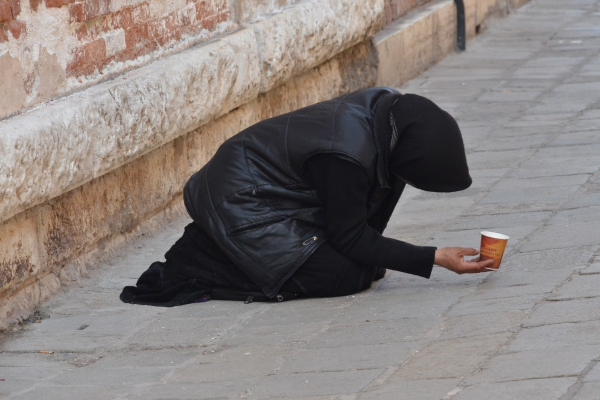

This article was submitted by ISA BELLE, a Dutch student studying in Herzegovina.
Beggars are not only a Balkan problem; they can be found everywhere from Beijing to New York and in rich and poor countries. However, beggars are definitely in high number in the Balkan. No way you can visit Bosnia or the Balkan and not have an encounter with them. In Bosnia, there are many Romanies (or gypsies) begging on the streets. They belong to an ethnic group migrated northward long ago from Central Asia and India and ended up in Eastern Europe.
There are few official numbers of their population, but it is difficult to come to an exact number especially in the Balkan where censuses are not done frequently. The unofficial number is about 700,000. Bosnia has the highest despite being a small country with only 4 million people. Romanies are seldom fully integrated into the society. The vast majority is barely educated, unemployed and thus suffering a far less desirable living standards.
It’s understandable that if you are a Roma with literally no opportunity, you end up begging. By begging, the Roma have created even more negative images among the local population in Bosnia. People look down on them and consider them almost un-human and often associate the entire Romani population with begging. Bosnians say that the Roma are begging not because they are hungry but because they want to buy alcohol and cigarettes. It is hard to form your opinion on this matter since there are two sides to the story. For one thing, I have seen Roma kids begging and running off to give money to their father who is sitting in a bar drinking. But I also saw a poor skinny kid asking me not for money but for something to eat.
Having people looking down on their race and the color of their skin gradually cements a vicious circle and limits their chance to opportunities which are already scarce in Bosnia. The only way out is for the government to provide the Roma jobs and educational opportunities which is difficult since Bosnia already has enough problems without the Roma being there. The solution to this problem seems unreal with Bosnia still struggling to first solve its own problems with its divided “white” ethnic groups before even casting an eye on the “darker” Roma.
The problem will not solve itself, and action is needed in order to improve the living standards of the Roma and to give them chances in life. The first Roma children in Bosnia have already gone to high school, and there are a few organizations trying to give more to the Roma more. I think it will take a long time until Roma beggars, and the Balkan become two separate things.